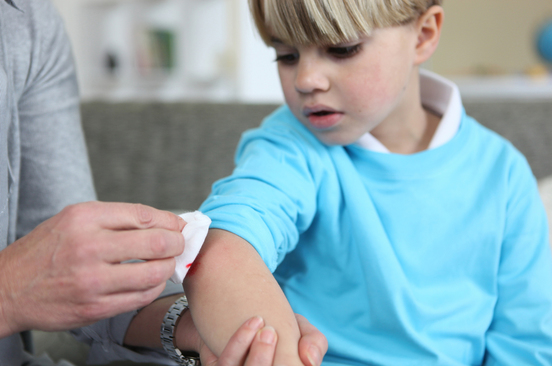In this week’s Thinking Thursdays TIPs we take a look at Empathy and Compassion. The two are not synonymous. According to Merriam-Webster, here are the definitions.
Empathy: The action of understanding, being aware of, being sensitive to, and vicariously experiencing the feelings, thoughts, and experience of another of either the past or present without having the feelings, thoughts, and experience fully communicated in an objectively explicit manner
Compassion: Sympathetic consciousness of others’ distress together with a desire to alleviate it.
I don’t know about you, but for me, the definitions sound so much alike it is no wonder so many of us use the two words interchangeably. Interestingly, I heard it said just this week, “without action, there is no compassion”.
Simply meaning, we can have feelings of empathy, and if we do nothing with those feelings, then indeed we are experiencing empathy. However, if empathy leads us to act, then and only then are we expressing compassion. Compassion is an action word.
 True Compassion
True Compassion
“True compassion means not only feeling another’s pain but also being moved to help relieve it.” – Daniel Goleman
A dear business associate of mine and frequent reader of Thinking Thursdays TIPs turned me on to a book a couple of weeks ago titled, “ Compassionomics: The Revolutionary Scientific Evidence That Caring Makes a Difference”, by Stephen Trzeciak and Anthony Mazzarelli. There is a quote in the book that is well worth examining.
“Most scientists define compassion as the emotional response to another’s pain or suffering, involving an authentic desire to help. It’s different from empathy, which is the feeling and understanding component (i.e., detecting and mirroring another’s emotions and experiencing their feelings) because compassion also involves taking action. [underline mine for emphasis]. Feeling empathy is a necessary precursor (or prerequisite) to motivate acts of compassion; so the terms are related, yet are also distinct.” (1)
 The Evidence is Clear
The Evidence is Clear
There is lots of evidence that indicates expressing compassion can increase patient satisfaction, improve patient compliance, and lower malpractice complaints.
The benefits of practicing compassion in healthcare have shown to have a strong correlation to positive patient outcomes.
In an article published by Stanford University’s Center for Compassion and Altruism Research and Education titled, “Compassion and kindness produce better outcomes. The healing touch”, by Graziella Steele, it was very simply stated, “compassionate care may be the best medicine”. (2)
So, if empathy is our ability to feel another’s pain, what can we do, in practical terms, to move from feeling empathy to demonstrating compassion? The short answer — take action!
Sometimes just acknowledging another’s pain or suffering can be enough. A kind word, a smile, or actively listening will do it.
 Expressing Compassion
Expressing Compassion
Expressing compassion as part of a healthy relationship would seem logical, natural, and I would argue, essential. Without the expression of compassion, can a healthy relationship even exist? I am just posing the question.
If it does take expressions of compassion from one human to another to be in a healthy relationship, then it’s really all about building and nurturing relationships, which then allows compassion to reach its full potential.
Think about it – a relationship begins at the very moment we first encounter someone else. At that moment in time is there an opportunity to express compassion? If so, what a wonderful way to begin a new relationship.
From that point forward, the relationship must be nurtured to become mutually beneficial. Healthy relationships take work and healthy relationships are built upon a foundation of trust.
 Trust is the Foundation
Trust is the Foundation
According to the Duke Center for Personalized Health Care, in the article titled, “The Importance of Physician-Patient Relationships Communication and Trust in Health Care”, by Tyler Johnson, “the physician-patient relationship is a foundation of clinical care.” (3)
At the core of every good, wholesome relationship is trust. Trust comes in many forms. Psychology Today lists seven techniques to build trust. In the article, “7 Ways to Build Trust in a Relationship”, by Andrea Bonior Ph.D., here are the seven techniques that each of us can use to build trust. (4)
1) Say what you mean, and mean what you say. …
2) Be vulnerable — gradually. …
3) Remember the role of respect. …
4) Give the benefit of the doubt. …
5) Express your feelings functionally, especially when it’s tough. …
6)Take a risk together. …
7) Be willing to give as well as receive.
“….‘patients must be able to trust doctors with their lives and health,’ and that maintaining trust is one core guidance for physicians…” — Birkhäuer et al, 2017 (5)
 Let’s Show Compassion
Let’s Show Compassion
With all that is happening in our world today, expressing compassion for another could be the key to a better tomorrow.
Can we commit to each other to express compassion to the next person that we encounter, and then the next person after that, and then the next person, and so on? If so, we will see the world change for the better.
I’m in! How about you? Let’s show compassion to each other starting now!
Please let us know if you have comments or questions, and subscribe to our Email Updates, so that you can be assured to receive Thinking Thursdays TIPs.
Thank you!
Jerry
Jerry L. Stone
Co-Founder/COO
MedicalGPS, LLC.
Resources:
1) Compassionomics: The Revolutionary Scientific Evidence That Caring Makes a Difference, by Stephen Trzeciak and Anthony Mazzarelli.
2) Stanford University’s Center for Compassion and Altruism Research and Education, “Compassion and kindness produce better outcomes. The healing touch“, by Graziella Steele
3 )The Importance of Physician-Patient Relationships Communication and Trust in Health Care, by Tyler Johnson
4) Psychology Today, “7 Ways to Build Trust in a Relationship”, by Andrea Bonior Ph.D.
5) Citation: Birkhäuer J, Gaab J, Kossowsky J, Hasler S, Krummenacher P, Werner C, et al. (2017) Trust in the health care professional and health outcome: A meta-analysis. PLoS ONE 12(2): e0170988. https://doi.org/10.1371/journal.pone.0170988


1 thought on “Empathy and Compassion in Healthcare. The Two are Not Synonymous.”